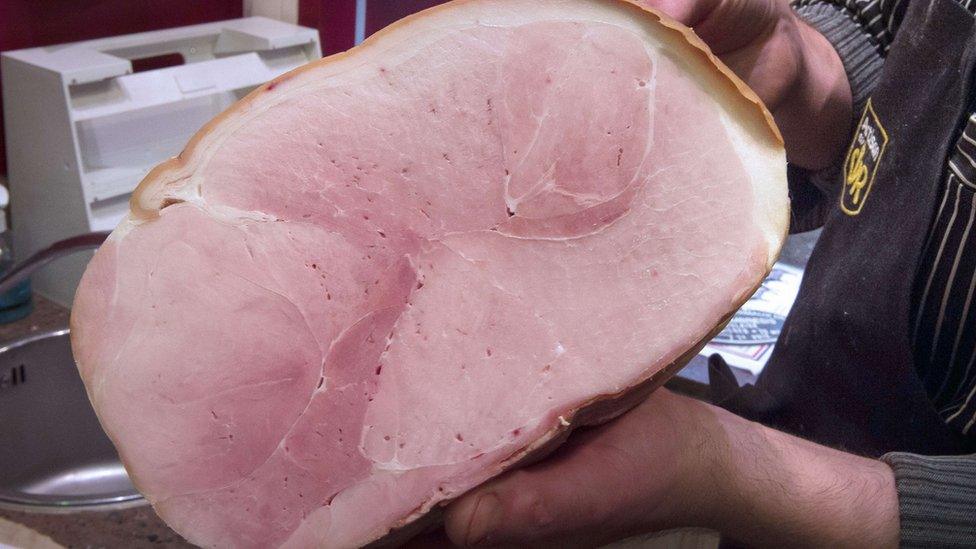Japan: Ham-giving tradition hit by WHO cancer report
- Published

Some Japanese consumers seem to be avoiding ham as gifts this year
Sales of one of Japan's more popular seasonal gifts have reportedly been hit in the wake of a World Health Organisation (WHO) report on cancer.
Hams are among items traditionally sent during the oseibo gift-giving season in December, but the WHO's report linking processed meats with bowel cancer mean that sales are lower than in previous years, The Japan Times newspaper says, external. According to one department store in Osaka, sales of ham - which usually spike in December - have fallen as shoppers opt for alternatives. "Customers might switch to other products, such as beer," an unnamed store official tells the paper.
Producers have sought to reassure customers that "moderate" consumption of ham and sausages carries a much lower cancer risk, but opinion seems to be split among shoppers who spoke to The Japan Times. While some say they've refrained from sending processed meats this year, one elderly consumer ordered a box of hams, saying: "I don't think the risks are huge."
Oseibo is one of two traditional gift-giving seasons in Japan, where people send presents to thank others for kindness they have shown during the year. Gifts are mainly consumables or premium foods, and ham, beer, desserts and cooking oil are popular choices. However, the festival appears to have merged with the Western idea of giving Christmas presents, and as Japanese cultural expert Rochelle Kopp writes, external, oseibo is now more likely to be observed by the older generation.
Next story: East meets West in Chinese 'hybrid' building
Use #NewsfromElsewhere to stay up-to-date with our reports via Twitter, external.